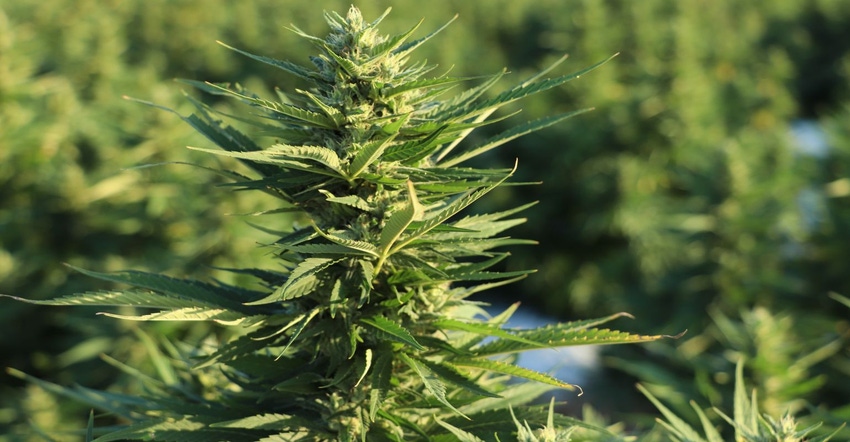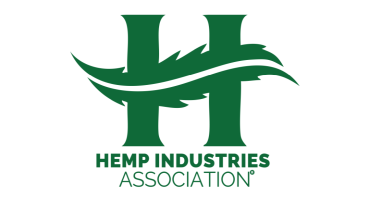Some organizations with members in the hemp industry have expressed concerns about delta-8 THC, including its intoxicating effects.

Some U.S. trade groups are split on whether delta-8 THC should be marketed in hemp products.
The 2018 Farm Bill signed by former President Donald Trump legalized all hemp-derived cannabinoids, including delta-8 THC, according to the Hemp Industries Association (HIA).
In a June 22 press release citing a legal opinion drafted by its attorneys, the trade group called for a regulatory framework grounded in science that would prioritize consumer safety.

“Businesses, farmers and consumers all deserve regulations that support the exploration of the hemp plant’s full potential,” said Jody McGinness, executive director of HIA, in the news release. “This isn’t just about one minor cannabinoid—the list [of cannabinoids] is over a hundred already and growing.”
Other organizations with members in the hemp industry have expressed concerns about delta-8 THC, including its intoxicating effects.
“When the Farm Bill was passed, it was very clear that Congress was making a distinction between intoxicating marijuana and nonintoxicating hemp, and they wanted to draw a line whereby intoxicating marijuana would be illegal at the federal level while nonintoxicating hemp would be legal,” said Jonathan Miller, general counsel of the U.S. Hemp Roundtable. Lawmakers “had no idea what delta-8 was at that point [and] wrote the statute in a way that provided this loophole.”
The U.S. Hemp Roundtable believes delta-8 THC should be subject to a regulatory framework keeping it out of the hands of minors, Miller said in an interview.
“I’m fairly confident that when the [state] legislatures come back next year, we’re going to see a real focus on segregating delta-8 and putting it into the adult use cannabis box as opposed to the hemp box,” the attorney added.
Miller confirmed some members of the U.S. Hemp Roundtable market delta-8 THC. On the other hand, several public companies with hemp products�—many of whom belong to the U.S. Hemp Roundtable—are not buying into the delta-8 THC frenzy.
On June 29, the board of directors of the American Herbal Products Association (AHPA) approved a guidance policy related to the marketing of concentrated delta-8 THC.
AHPA discourages the marketing of goods containing synthesized cannabinoids—including synthesized delta-8 THC—and labeled as hemp products. AHPA’s May 2021 hemp lexicon defines synthesized cannabinoids as “a cannabinoid synthesized in a laboratory or by industry using directed synthetic or biosynthetic chemistry rather than traditional food preparation techniques such as heating or extracting.”
AHPA is “not opposed to the marketing of delta-8 THC products, but if it’s a synthetized delta-8 THC and you’re identifying it as a hemp product, that’s what we’re discouraging,” said Jane Wilson, AHPA’s director of program development, in an interview.
Among AHPA members’ primary concerns related to delta-8 THC: That “an intoxicating substance [is] being associated with the hemp industry,” Wilson shared.
She conceded an assumption is being made that all delta-8 THC products on the market have gone through a synthesis process. According to several sources in the hemp industry, delta-8 THC is only present in minute amounts in hemp through degradation of the plant.
“The cannabis plant does not naturally produce any delta-8 THC,” said Jeff Field, president and COO of Palmate, a privately held manufacturer of CBD isolate and other cannabinoid ingredients, in an interview.
No U.S. company “is extracting delta-8 from the plant and then separating and refining it,” added Field, whose company does not manufacture delta-8 THC. “It is all being made from either delta-9 THC or from CBD.”
HIA has argued delta-8 THC is likely not synthetic. Even if delta-8 THC is categorized as synthetic, it is not a controlled substance because “the 2018 Farm Bill clearly defined ‘hemp’ to include its ‘derivatives,’ which by definition are ‘synthetic’ (specifically, ‘bio-synthetic') compounds,” according to HIA’s attorneys, Rod Kight and Philip Snow, in their legal opinion.
Vote Hemp President Eric Steenstra understands why the delta-8 THC market has taken off.
“If you’ve got 500 kilos of CBD isolate and you can’t sell it or the price is really low, just convert it to delta-8, and it’s blowing off the shelves,” he observed in an interview. “That’s basically what’s happened here.”
Steenstra raised many concerns about delta-8 THC, including whether the products are being produced safely and to quality standards.
“There’s questions about access to high dosages of a psychoactive compound in gummies being sold at a gas station to anybody who puts it up on the counter,” he said in an interview. “I think there’s real concerns here and … the industry has rushed forward to market these as widely as possible.”
Delta-8 THC products that haven’t been marketed responsibility or carefully tested, Steenstra added, threaten to undermine consumer confidence in hemp products.
But the answer to such concerns isn’t prohibition of delta-8 THC, according to HIA. The trade association in its news release called on state lawmakers to shun “ineffective bans in favor of partnering with hemp industry experts to craft hemp policy that safely opens markets, fosters innovation, spurs investment and creates valuable jobs.”
About the Author(s)
You May Also Like






.png?width=800&auto=webp&quality=80&disable=upscale)